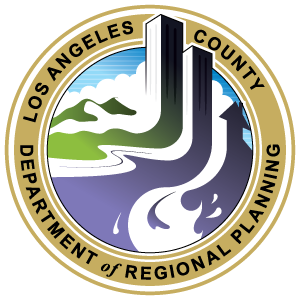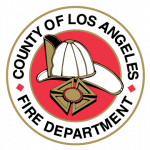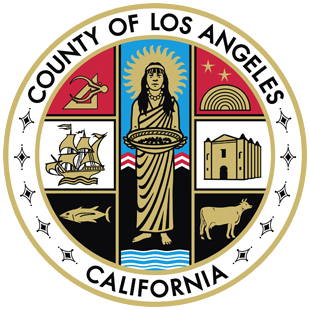
County Roles in Oil & Gas
County Agencies play an important role to ensure that the oil and gas industry is conducted in a safe and sustainable manner. Below is a list of the primary County, State, and Federal agencies that have this responsibility and a short description of those responsibilities.
COUNTY AGENCIES

Office of Oil and Gas
Although the Office has no regulatory powers, the Office allows the County to play an enhanced role in monitoring the Oil and Gas industry by:
- Serving as a central point of contact for the community, regulators, and industry across all oil and gas issues.
- Coordinating the work of County Departments in order to:
- Partnering with Local Jurisdictions
- Work with local jurisdictions to ensure regional coordination on issues related to oil and gas.

Oil and Gas Strike Team
http://planning.lacounty.gov/oil-gas/strike
Assess existing Oil and Gas Facilities
Regional Planning, in coordination with Fire, Public Health, and Public Works convened a Strike Team to assess the conditions, regulatory compliance, and potential public health and safety risks associated with existing oil and gas facilities in the unincorporated Los Angeles County. The Strike Team reports back in writing on a biannual basis with a summary of its findings and recommendations.

Department of Regional Planning (DRP)
Land Use Regulation
DRP regulates land use on private property within the unincorporated County based on Title 22 of the County Code. Title 22 contains development standards for buildings and structures, as well as performance standards for various uses, including oil wells. Since the 1920s, the County Code has regulated, in some form, the storage of oil.
Existing wells in the unincorporated areas of the County continue to operate under either:
- Previously issued land use permits
- Ministerial approvals, such as ministerial site plan review, which do not expire
Discretionary approvals, such as CUP or Zoning Exception Case.

Public Works (PW)
https://pw.lacounty.gov
Pipeline Franchise Agreements
Public Works (PW) grants franchises to oil and gas companies for the right to lay pipelines along County rights-of-way to transport oil and gas products within the unincorporated County based on Title 16 of the County Code and California Public Utilities Code, Division 3. In addition, the Flood Control District grants leases to oil and gas companies for the right to lay pipelines along its rights-of-way based on Subsection 13 of the Los Angeles County Flood Control Act. PW verifies compliance with the terms and conditions of the franchises.
Pipeline Safety Excluded
The right to grant franchises does not extend to enacting or enforcing pipeline safety laws or regulations. The County lacks statutory authority to regulate safety and/or is preempted under federal law from regulating.

Fire Department
https://fire.lacounty.gov
The County Fire Department regulates oil and gas facilities such as oil wells, tank farms, and petroleum refineries through its Fire Prevention Division (FPD) and Health Hazardous Materials Division (HHMD). The FPD regulates these facilities under the authority of the County of Los Angeles Fire Code, Title 32, and HHMD under the authority of the California Health and Safety Code chapters 6.5, 6.7, and 6.95, the California Code of Regulations, Titles 19, 22, and 27, and local ordinance.
The FPD regulates the oil and gas industry by approving new construction, conducting inspections, and issuing permits for oil wells, tank farms, pipelines, and other aboveground oil and gas facilities. The FPD inspects permitted facilities on an annual basis to ensure compliance with appropriate codes.
Health Hazardous Materials Division
The HHMD oversees the annual disclosure and triennial compliance inspection requirements for hazardous materials handlers, hazardous waste generators, aboveground petroleum storage tank facilities, underground storage tank facilities, and risk management plans at oil and gas facilities. HHMD currently regulates three petroleum refineries.

Department of Public Health (DPH)
http://publichealth.lacounty.gov/
Protection of Public Health and Safety
The Department of Public Health is responsible for the protection of public health and safety based on Title 11 of the County Code which provides the Health Officer with the authority to “take measures to preserve and protect the public health, including the regulation of sanitary matters.” Current regulations for oil and gas facilities are limited to fencing and protection of well openings. During a declared emergency involving an oil and gas facility, the Health Officer’s role expands to allow the Health Officer to take any preventive measure necessary to protect public health. DPH also investigates health concerns in response to community reports of noise and other concerns from the public.
- Land Use Review
When DRP determines that a discretionary permit for an oil and gas facility is required, DPH reviews land use documents to provide health and safety comments and recommends conditions of approval.
- Oil and Gas Strike Team
As a member of the County Oil & Gas Strike Team, DPH participates in assessments of oil and gas facilities in unincorporated County, completing a public heath and safety review for each inspected facility.
- Baldwin Hills Community Standards District
Under the authority of the Baldwin Hills Community Standards District (CSD), DPH performs the following:
- Monitors noise from the Inglewood Oil Field operations
- Participates in the Multiple Agency Coordination Committee to coordinate activities and communications of regulatory agencies with oversight of the CSD
- Completes a Health Assessment and Environmental Justice study of the surrounding community as required by the 2011 Settlement Agreement.

Chief Executive Office (CEO)
https://ceo.lacounty.gov/
Lease County Land
The Chief Executive Office handles non-franchise real estate transactions, which may include granting licenses and leases to oil and gas companies to locate and service their facilities, such as wells, tanks, and processing plants based on California Government Code Sections 25350 through 25549.23.

Chief Sustainability Office (CSO)
https://lacounty.gov/sustainability/#
Implement “OurCounty” Sustainability Plan
CSO is a unit within the CEO that was formed by the Board of Supervisors in 2016 in order to create the County’s first sustainability plan, which provides an overarching strategic vision for sustainability for the region. Based on stakeholder feedback, the plan contains a number of initiatives related to oil and gas. The OurCounty plan was adopted by the Board in 2019, and CSO’s role going forward is to work with departments to coordinate plan implementation.